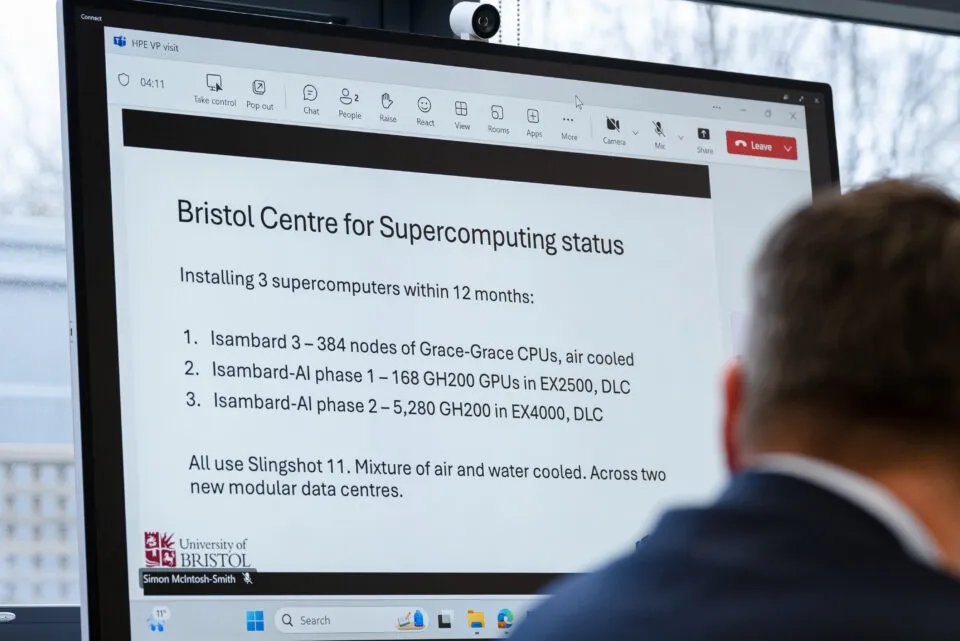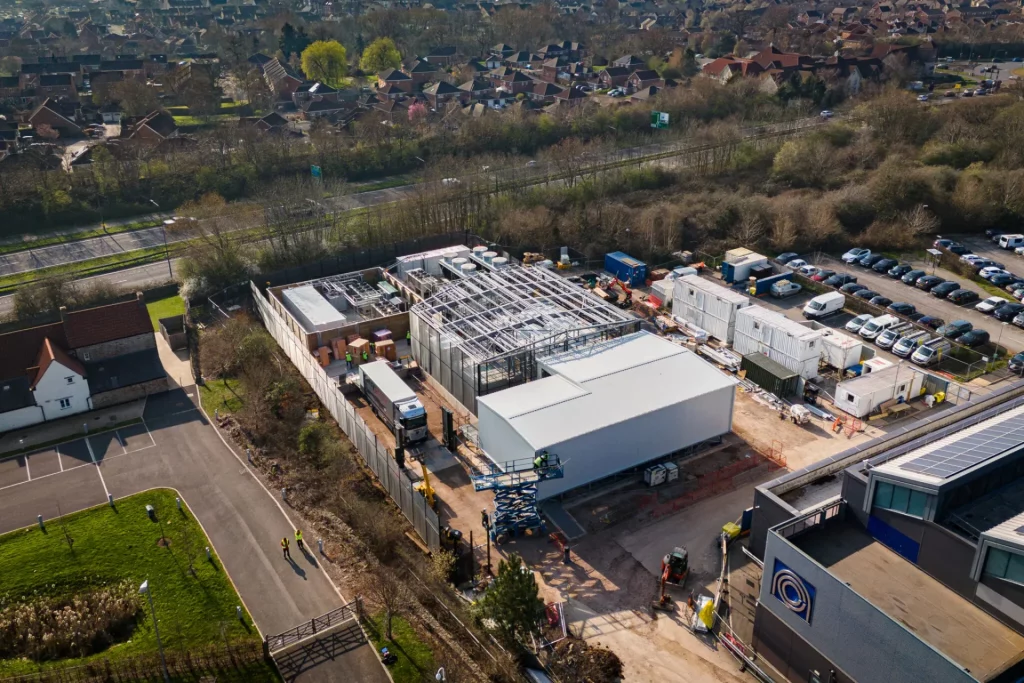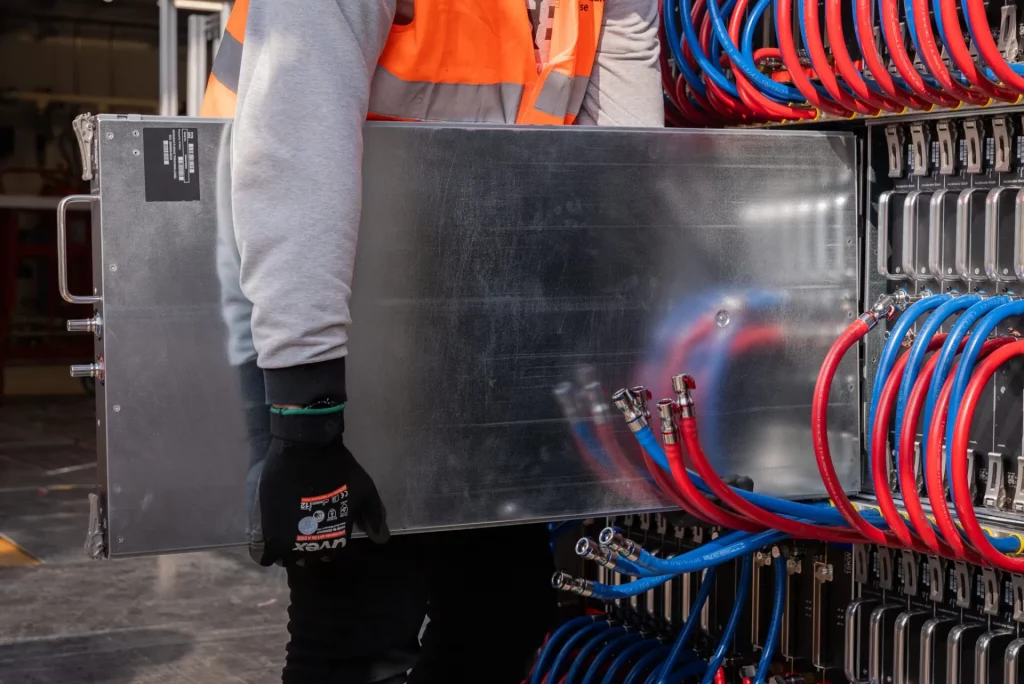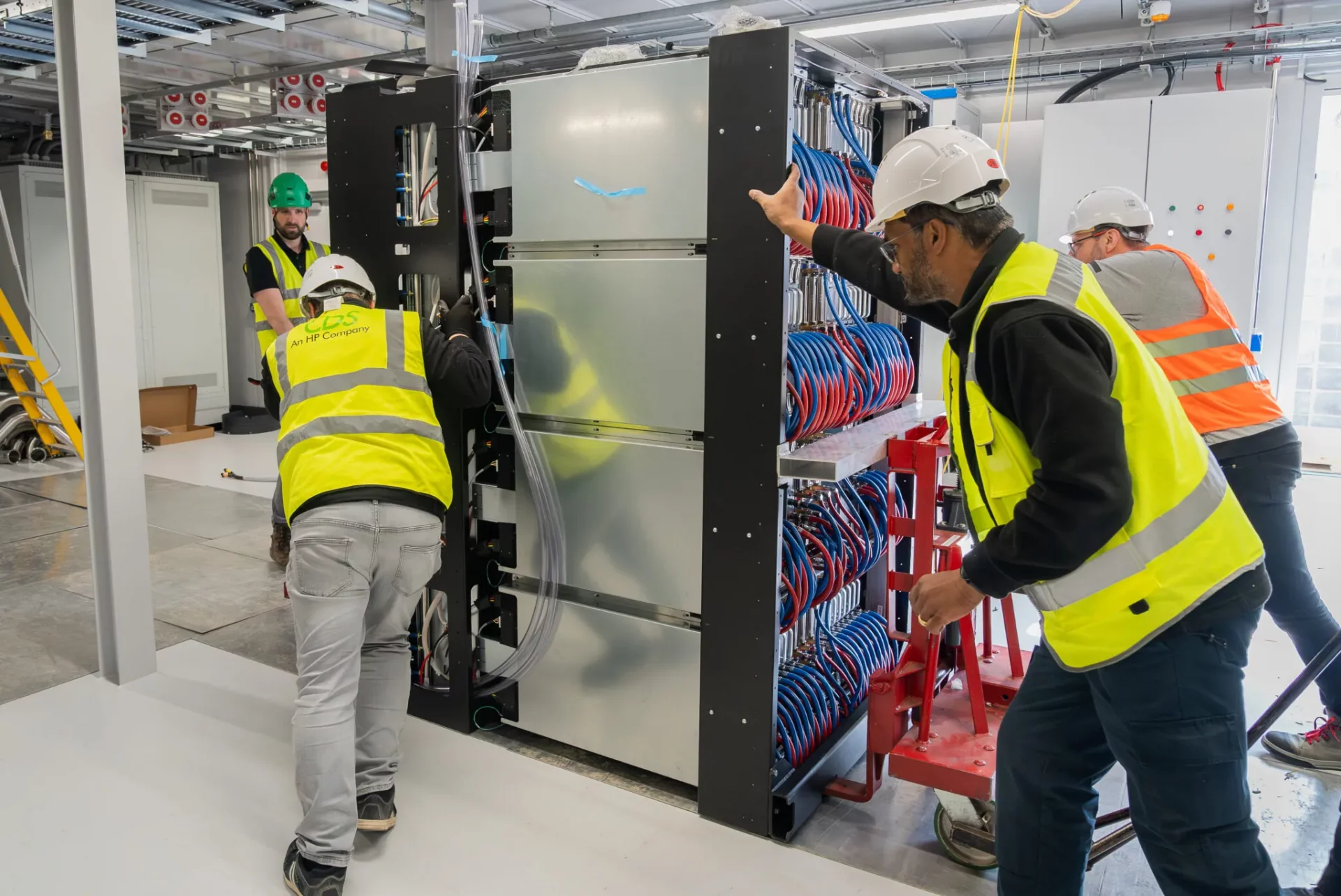The UK has officially activated Isambard-AI, its most powerful AI supercomputer to date, marking a significant leap in the nation’s high-performance computing capabilities. Unveiled at the Bristol Centre for Supercomputing (BriCS), the system now positions Britain among the top players in global AI infrastructure.
 Backed by a collaboration between NVIDIA, Hewlett Packard Enterprise (HPE), and the University of Bristol, the system was formally launched with UK Secretary of State Peter Kyle in attendance. Kyle hailed the machine as “Britain’s super future,” underscoring its potential to transform public services, scientific research, and national security.
Backed by a collaboration between NVIDIA, Hewlett Packard Enterprise (HPE), and the University of Bristol, the system was formally launched with UK Secretary of State Peter Kyle in attendance. Kyle hailed the machine as “Britain’s super future,” underscoring its potential to transform public services, scientific research, and national security.
Powered by 5,448 GH200 Grace Hopper Superchips acting in unison, Isambard-AI delivers 21 exaflops of AI performance, making it 10 times faster than any other UK system and collectively more powerful than all of them combined. The system is expected to debut as the 11th fastest in the world on the TOP500 list and 4th in energy efficiency on the Green500.
Early AI deployments on Isambard-AI include:
- Nightingale AI, trained on NHS data for personalized healthcare;
- BritLLM, a bilingual large language model for English and Welsh;
- UCL’s Cancer AI, using MRI data for early prostate cancer diagnosis;
- EIMCRYSTAL, exploring 68 million combinations of sustainable materials;
- EgoAI, leveraging wearables to support daily living, especially for dementia patients.
 Construction began in June 2024 and reached full operational status in just a year. According to BriCS Director Simon McIntosh-Smith, the rapid build was made possible by managing the project like a high-performance chip which they took the path of parallelizing tasks and installing prefabricated data halls within days.
Construction began in June 2024 and reached full operational status in just a year. According to BriCS Director Simon McIntosh-Smith, the rapid build was made possible by managing the project like a high-performance chip which they took the path of parallelizing tasks and installing prefabricated data halls within days.
 Energy efficiency was a major focus. HPE’s liquid-cooling tech, hybrid towers, and carbon-free energy sources ensure that Isambard-AI operates sustainably while pushing the boundaries of AI computing.
Energy efficiency was a major focus. HPE’s liquid-cooling tech, hybrid towers, and carbon-free energy sources ensure that Isambard-AI operates sustainably while pushing the boundaries of AI computing.
Management of the system lies with the Department for Science, Innovation and Technology and UK Research and Innovation, with an emphasis on ensuring access not only for major institutions but also for smaller research groups and startups.





